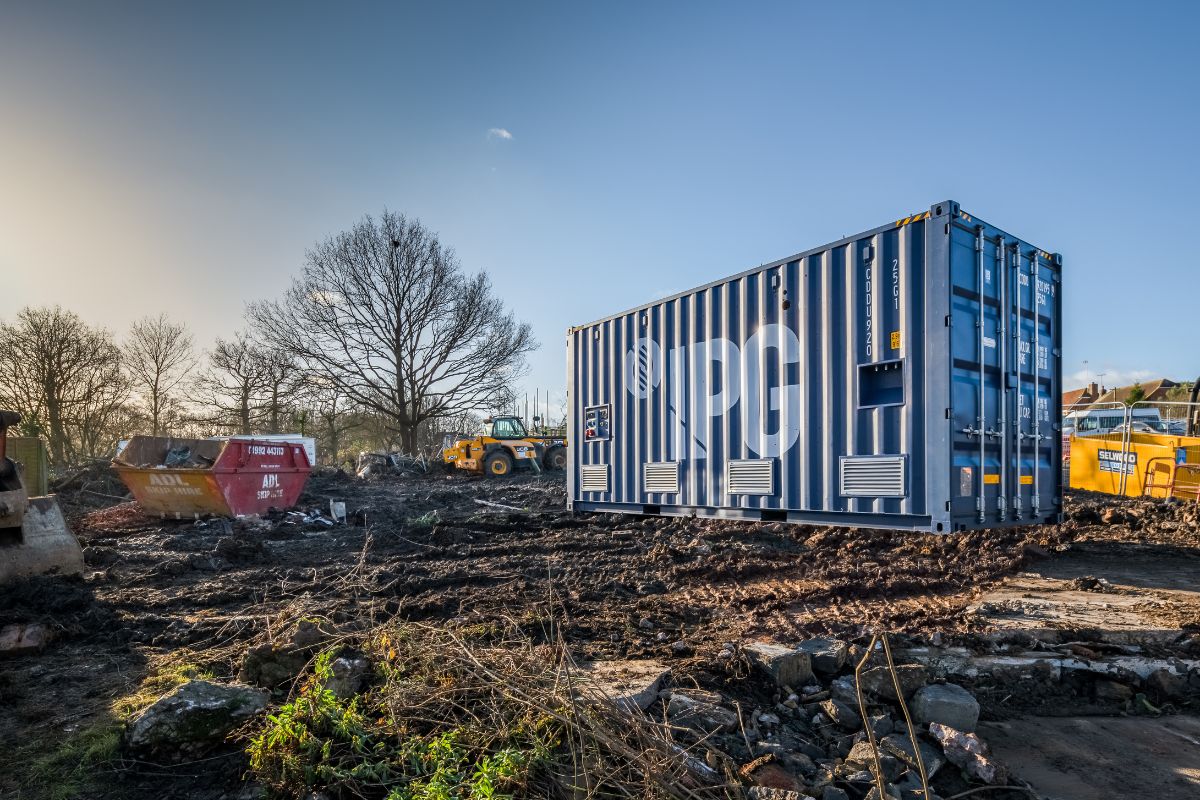Fuel-agnosticism can help constructors meet their zero diesel target
The construction sector has had diesel as its backbone for a very long time. For the time being, it is the fuel that powers everything from the vehicles that transport materials to and from sites to the estimated 300,000 items of non-road mobile machinery (NRMM) such as generators that make projects possible on these sites from one day to the next.
Yet despite its dominant status in the past and present, the harmful effects of diesel emissions meant that the fuel’s future has been far from certain. Air pollution, including that from construction sites, has been identified as the single largest environmental health risk in Europe, with even low-level exposure linked to an increased risk of strokes, cancer and premature death. In London, almost 10,000 premature deaths in 2010 were attributed to airborne NO2 and PM2.5.
London-centric legislation such as the Air Quality Neutral (AQN) and Air Quality Positive (AQP) guidance has been planned to combat the effects of poor air quality on human health as a result of the built environment sector, but a nationwide plan was required if the entire population’s health was to benefit.
Diesel’s ultimate fate was sealed with the recent publication of the Construction Leadership Council’s (CLC’s) Zero Diesel Sites Route Map, which aims to have eliminated 78 per cent of diesel-powered machinery from all construction sites by 2035, as part of the government’s commitment to net zero by 2050.
Formed by a working group which included big name contractors such as Sir Robert McAlpine, Laing O’Rourke and Kier, the route map has examined different ways of transitioning construction sites away from their reliance on fossil fuels. To that end, trials are ongoing in which the heavy-duty vehicles used by contractors are now powered by electricity rather than their conventional internal combustion engines.
But this is frequently an unworkable solution when it comes to replacing the current crop of affordable and reliable workhorse site generators which are powered by diesel. Other countries such as Norway have similar targets in the construction sector to the UK’s, but are finding that though electrification works on smaller, municipal projects, larger-scale private projects have a demand for electricity which cannot be met.
A similar pattern is emerging here. Not every site has an existing connection to the National Grid that can cope with the project’s demands. If the connection can’t fulfil requirements, it needs to be upgraded, and in some cases, new connections must be requested. This is a lengthy process, with some projects facing a 10-year wait time for a connection that can meet their needs. Instead, more immediate solutions are required.
With net zero now firmly on the agenda, alternative fuels are the best solution for eliminating diesel from onsite power on these sites. However, choosing a single-fuel generator is fraught with difficulty. Despite there being a choice of renewable fuels including green hydrogen, HVO and other biofuels, the supply chains of these fuels are still relatively immature and their price can be prohibitively high.
Costs of the fuels can also fluctuate. This prevents constructors at the tender stage being able to price the solutions with any confidence that changes in fuel’s cost will not eat into their already slim profit margins. If a fuel becomes more expensive than has been planned for, at best it narrows these margins. At worst, the single-fuel generator would become a redundant asset that stands idle while a conventional fuel generator is hastily acquired and set up. The redundancy of a single-fuel generator may also be even more of a challenge given that new technologies are, in many cases, the reason why constructors are abandoning the business-as-usual practice of renting generators in favour of purchasing capital-intensive assets to help them meet their net zero targets.
These factors are hindering scalability which consequently means that diesel generators remain the preference for most constructors despite their days being numbered. Reliance on conventional fuel is a headache for the construction industry but a forward-thinking, innovative solution is at hand.
Flexible, renewable onsite power with fuel-agnosticism
Fuel-agnostic generators allow construction companies to securely switch to renewable fuels today, ahead of abundant supplies of renewable sources, and can be as cost-effective and reliable as their diesel counterparts. They can run on any renewable fuel, meaning that its operator can leverage the most abundant and cheapest source of fuel that is immediately available, so there is no risk of being stranded without fuel.
The concept offers true flexibility on a day-by-day, project-by-project basis. Much of the cost of running a generator is in its fuel and constructors can find an optimised balance between sustainability and cost by using zero- and net zero-carbon fuels, switching to others if they become cheaper than their current choice. If the market in renewable fuels is prohibitive, conventional fuels can be used as a backup – all without the need to deploy a different generator.
The use of renewable and conventional fuel allows a fuel-agnostic generator to be confidently deployed at scale. A generator no longer needs to stand idle because there is no fuel for it, and this security will lead to a wider adoption of the fuel-agnostic concept. This wider adoption will drive demand for renewable fuels, increased production of which drive down their costs which will also quicken the transition away from fossil fuels. The supply chains for renewable sources of fuel will mature as fuel-agnosticism becomes the norm for contractors which have already transitioned away from fossil fuels, allowing those who are about to embark on their own transition journey to follow suit.
Meeting the route map’s target and eliminating emissions will be better for everyone, from those working onsite to those living in the communities which surround them. Fuel-agnosticism is an opportunity which offers a reliable route through the transition away from conventional fuels and beyond, leading the way in the cleaner construction sites of the future.
Toby Gill is the chief executive of IPG Energy, a climate tech company



